Life Sciences News
See our Latest Journal Publications
ENABLE workshop: Are the university learning environments as inclusive as we think?
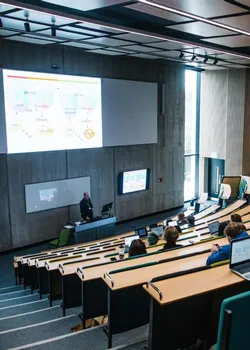 On Friday 29 September 2023, the School of Life Sciences will be hosting a free workshop: "Are the university learning environments as inclusive as we think? An investigation from the awarding perspective".
On Friday 29 September 2023, the School of Life Sciences will be hosting a free workshop: "Are the university learning environments as inclusive as we think? An investigation from the awarding perspective".
Based on a thorough data analysis from recent years and first-hand practical experience, the workshop will identify existing reasons for lack of inclusivity and unbiased awarding in biological science and related degree streams.
The workshop participants, comprising academic leaders, teaching professionals and a diverse student community, will also provide on consensus recommendations on how to close existing awarding gaps for a more inclusive learning and teaching environment throughout the UK.
Consensus recommendations will be published in a peer-reviewed journal.
Helping plants and bacteria work together reduces fertiliser need
Today, published in Microbiome, Dr Beatriz Lagunas and colleagues at the Universities of Warwick and Justus Liebig (Germany) have shown a new way to boost plant nutrient uptake and growth. This could reduce the need for fertilisers, an input to agriculture which can be harmful for the environment. Fertilisers can run into waterways, or get broken down by microbes in the soil, releasing the potent greenhouse gas nitrous oxide into the atmosphere.
Press release (3 July 2023)
The first British Baked Beans could be on the breakfast menu thanks to University of Warwick research
Professor Eric Holub, a plant scientist at Warwick Crop Centre, has developed Haricot bean varieties which can be sown in early May and harvested as a dry grain before mid-September, matching the UK's warmer months. Until now, it has been impossible for farmers to grow the haricot variety used for baked beans in the UK because they are incompatible with the climate.
Press Release (16 June 2023)
The story was also on BBC Breakfast. Watch it on iPlayer (from 22m 30s)
Honorary Fellow
 Professor Murray Grant has been re-elected as an Honorary Fellow of the Academy of the Royal Society of New Zealand. Fellows have made contributions to knowledge at the highest levels in their different fields and across disciplinary boundaries. Find out more
Professor Murray Grant has been re-elected as an Honorary Fellow of the Academy of the Royal Society of New Zealand. Fellows have made contributions to knowledge at the highest levels in their different fields and across disciplinary boundaries. Find out more
Can super-speedy plant cells feed a growing population?
 Dr Joe Mckenna has been awarded a BBSRC Discovery Fellowship of £535,000 to investigate actin – a natural molecule contained in plant cells – to see whether it can be engineered to move faster and so grow bigger plants with more biomass.
Dr Joe Mckenna has been awarded a BBSRC Discovery Fellowship of £535,000 to investigate actin – a natural molecule contained in plant cells – to see whether it can be engineered to move faster and so grow bigger plants with more biomass.
Press release (21 March 2023)
Two domestications for grapes
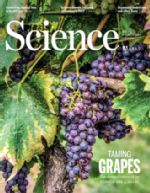 Professor Robin Allaby gives his perspective in Science, on the evolutionary events that led to grape domestication. The article made the front cover.
Professor Robin Allaby gives his perspective in Science, on the evolutionary events that led to grape domestication. The article made the front cover.
Read the paper (3 March 2023)
Growing British - Professor Napier on Radio 4
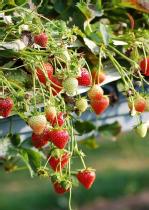 On Thursday 2 March, Professor Richard Napier was featured on the BBC Radio 4 Farming Today programme talking about a new green paper “Growing British” he helped to create. It’s a strategy highlighting how to increase fruit and veg production in the UK. Listen (from 1:14).
On Thursday 2 March, Professor Richard Napier was featured on the BBC Radio 4 Farming Today programme talking about a new green paper “Growing British” he helped to create. It’s a strategy highlighting how to increase fruit and veg production in the UK. Listen (from 1:14).
Meet our researchers: John Walsh
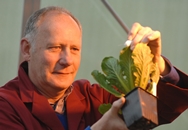 Professor John Walsh talks about his research into how viruses interact with agricultural crop plants, and how to improve vegetable crops’ resistance to viruses without using pesticides.
Professor John Walsh talks about his research into how viruses interact with agricultural crop plants, and how to improve vegetable crops’ resistance to viruses without using pesticides.
His food and agricultural research has helped to improve natural resistance to the viruses that infect plants, reduce the use of pesticides and improve health and welfare.
Scientists reveal why sprouts taste better as you get older… and why your grandparents were right all along
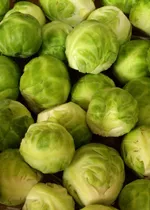 Researchers from Warwick Crop Centre are sharing food for thought about the humble sprout this Christmas and tell us:
Researchers from Warwick Crop Centre are sharing food for thought about the humble sprout this Christmas and tell us:
• Why having a gene mutation makes sprouts taste horrid
• Why sprouts taste better after frost
• Why they make us gassy
Press release (15 December 2022)
Four new academic positions available in the School of Life Sciences
We wish to appoint four excellent and ambitious early to mid-career principal investigators who are capable of developing innovative and original research programmes:
- 2 x Permanent positions focused on Host-virus Interactions
- 1 x Permanent position focused on Plant Virology
- 1 x Permanent position focused on Host Responses to Microbes
£1.5m Crop Research Centre opens at University of Warwick
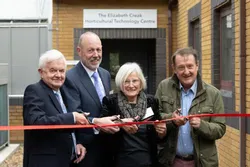 A facility using gene-editing technology to improve quality, resilience and sustainability of vegetable crops has opened at the University of Warwick.
A facility using gene-editing technology to improve quality, resilience and sustainability of vegetable crops has opened at the University of Warwick.
The Elizabeth Creak Horticultural Technology Centre (ECHTC), which also contains The Jim Brewster Laboratory, is a £1.5 million facility which will use cutting edge techniques such as gene-editing to improve vegetable crops.
Addressing issues relating to disease resistance, crop yield, adaptability to climate change and nutritional value in horticultural plants, the research will help with the key global challenges of climate change and feeding the world’s growing population.
Press Release (10 November 2022)
International collaboration identifies new molecular targets in crop resistance
Professor Murray Grant is part of a team of international researchers who have identified and classified new isomers that could help develop more robust and resistant crops – via synthetic biology approaches.
Press Release (4 November 2022)
Warwick iGEM success
iGEM is a global synthetic biology competition aimed at University and High School students.This year, 360 teams from across the world took part in iGEM, including a team from Warwick - team PyRe. The team attended the Grand Jamboree in Paris, on 26-28 October.
After delivering their presentation and attending the judging session, the team were awarded a gold medal for their project. They were also nominated for the Best Environment Project for their excellent work on the detection and degradation of pyrethroid pesticides. Read about the project.
Team PyRe members:
- Aayush Patel (2nd Year Biochemistry)
- Mujie Chen (2nd Year Neuroscience)
- Ashmitha Srirasan (3rd Year Biomedical Science)
- Yvette Lo (3rd Year Biomedical Science)
- Jerry Yu (4th Year MBio Biochemistry)
- Prem Ravichandran (2nd Year Computer Systems Engineering)
- Zak Fulk (3rd Year Biomedical Systems Engineering)
- Ng Yi Fan (2nd Year Economics)
The team were supported by Dr Fabrizio Alberti and Dr Alexander Darlington (Engineering), and postgraduate advisors Sandie Lai, Daniel Richmond (Chemistry), Michaël Dagne Tadesse and Nathan Burton.
Elizabeth Creak Distinguished Guest Lecture - 10 November 2022
Our Technical Talent
 Over the next few weeks the University is showcasing the vital roles our technical staff play in the world-class research and teaching at Warwick. The latest video features Georgia Lavender, Senior Teaching Lab Technician, from the SLS Teaching Lab.
Over the next few weeks the University is showcasing the vital roles our technical staff play in the world-class research and teaching at Warwick. The latest video features Georgia Lavender, Senior Teaching Lab Technician, from the SLS Teaching Lab.
Watch the video.
Producing a baked bean suitable for growing in the UK
 On Thursday 13 October, Professor Eric Holub, a plant scientist at Warwick Crop Centre, was featured on Channel 5 discussing his research to produce baked bean varieties suitable for growing in the UK climate on a commercial scale.
On Thursday 13 October, Professor Eric Holub, a plant scientist at Warwick Crop Centre, was featured on Channel 5 discussing his research to produce baked bean varieties suitable for growing in the UK climate on a commercial scale.
Growing haricot beans in the UK will offer a low food miles alternative supply model to those currently imported from North America.
Watch Secrets of Your Supermarket Shop: Episode 6 (from 28 mins).
Warwick included in ancient DNA compilation celebrating Nobel Prize
 Nature Portfolio has compiled a collection of key ancient DNA papers in celebration of the Nobel Prize in Physiology or Medicine award to the field’s principal pioneer, Svante Pääbo, which includes the work of Professor Robin Allaby published in Nature Reviews Methods Primers. The paper outlines the best current methodological approaches to the field, the wide range of applications possible and ethics involved. The primer is freely available for a month.
Nature Portfolio has compiled a collection of key ancient DNA papers in celebration of the Nobel Prize in Physiology or Medicine award to the field’s principal pioneer, Svante Pääbo, which includes the work of Professor Robin Allaby published in Nature Reviews Methods Primers. The paper outlines the best current methodological approaches to the field, the wide range of applications possible and ethics involved. The primer is freely available for a month.
The Nobel Prize was awarded in particular for the discoveries concerning the genomes of extinct hominins and human evolution which has dramatically changed how we understand human evolution and contributes to our understanding of modern-day human physiology. At Warwick, Professor Allaby has applied ancient DNA to past genomes of crop plants which is rewriting our understanding of domestication, recently reviewed in Trends in Ecology and Evolution.
SLS students represent University of Warwick at Botanical University Challenge
The room was full of tension and enthusiasm on Wednesday 16 February as Warwick’s team, Pistils at Dawn, entered this year’s Botanical University Challenge (BUC). Pistils at Dawn fought well in the closely run competition, coming 11th out of the 18 institutions that entered. Only 4 points separated Pistils at Dawn from the top eight teams, which went on to compete in the finals on 23 February. The Challenge organiser, Dr Jonathan Mitchley sent team Pistils at Dawn “huge commiserations for such a close shave” and told the team to “be proud, very proud” as they were the first ever team to enter for the University of Warwick.
Co-captains Jamie Pike and Annabelle de Vries, along with Andy Gladman, Stefania Luca, and reserve Andis Gyori László, were quizzed on a broad range of botanical subjects including botanical literature and art, plant identification, and national flags! The team hopes to enter again next year, with eyes set on top place. You can see how well you fair and meet the teams by visiting the BUC YouTube channel.
Digging for Britain - DNA testing
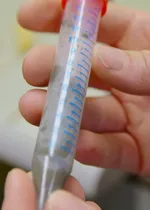 On 5 January Professor Robin Allaby featured in the BBC's Digging for Britain programme. He discussed the DNA testing of sediment from a Mesolithic settlement located on the seabed of the Solent. The analysis determined what was being eaten by the Mesolithic people. The appearance of wheat, 2000 years earlier than previously accepted was a major revelation.
On 5 January Professor Robin Allaby featured in the BBC's Digging for Britain programme. He discussed the DNA testing of sediment from a Mesolithic settlement located on the seabed of the Solent. The analysis determined what was being eaten by the Mesolithic people. The appearance of wheat, 2000 years earlier than previously accepted was a major revelation.
Watch on iPlayer (from 46:10)
The Vegetables of Christmas Future
 If you think about a traditional Christmas dinner, there’s turkey with pigs in blankets, or maybe you prefer a nut roast. But the rest is vegetables. A large proportion of our plate should be covered in vegetables, and the standard winter varieties, like carrots and sprouts, are grown very successfully in the UK.
If you think about a traditional Christmas dinner, there’s turkey with pigs in blankets, or maybe you prefer a nut roast. But the rest is vegetables. A large proportion of our plate should be covered in vegetables, and the standard winter varieties, like carrots and sprouts, are grown very successfully in the UK.
But will this always be the case? Climate change is bringing with it new challenges as well as making known pests and diseases more difficult to tackle. Scientists at Warwick's Crop Centre, are working to understand the pests and diseases of the some of the UK’s major crops and developing new resistant varieties, using traditional plant breeding and genetic expertise.
Read the Knowledge Centre Article (1 December 2021)

